Five incoming graduate students have been awarded Vector Scholarships in Artificial Intelligence (VSAI).
Established in 2017, the Vector Institute supports AI talent, drives research excellence and fosters AI-based innovation in Canada. Its annual VSAI program recognizes top students across Ontario, who are enrolled in Vector-recognized master’s programs and those pursuing individualized AI study paths.
This year’s cohort of 120 scholarship recipients across the province will receive a total of $2.1 million in funding, with each student awarded $17,500.
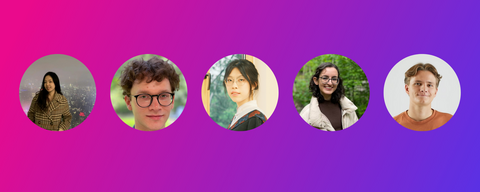
L to R: Cara Ji, Lucas Kopp, Xiaoxi Luo, Hosna Oyarhosseini, and Michael Solodko. These incoming Cheriton winners are leveraging AI to push the boundaries of HCI, information retrieval and NLP.
“We’re incredibly proud of this year’s outstanding scholarship recipients,” says Melissa Judd, Vector’s Vice President, Research Operations and Academic Partnerships. “Through the Vector Scholarship in Artificial Intelligence, we’re not just supporting graduate students — we’re connecting them with opportunities that keep them building, innovating, and leading right here in Canada. Their success reinforces Ontario’s position as a global centre for AI excellence.”
Beyond financial aid, recipients can access career opportunities such as Vector’s Digital Talent Hub, networking events, research talks, and professional development programs. Current VSAI alumni are working at companies in Canada, including TD, Trillium Health Partners and Cohere.
The Cheriton School of Computer Science congratulates and welcomes its five VSAI recipients for 2025–26: Cara Ji, Lucas Kopp, Xiaoxi Luo, Hosna Oyarhosseini, and Michael Solodko. With this funding, they will study AI and use it as a tool to push the boundaries of human-computer interaction (HCI), information retrieval and natural language processing (NLP).
Cara Ji
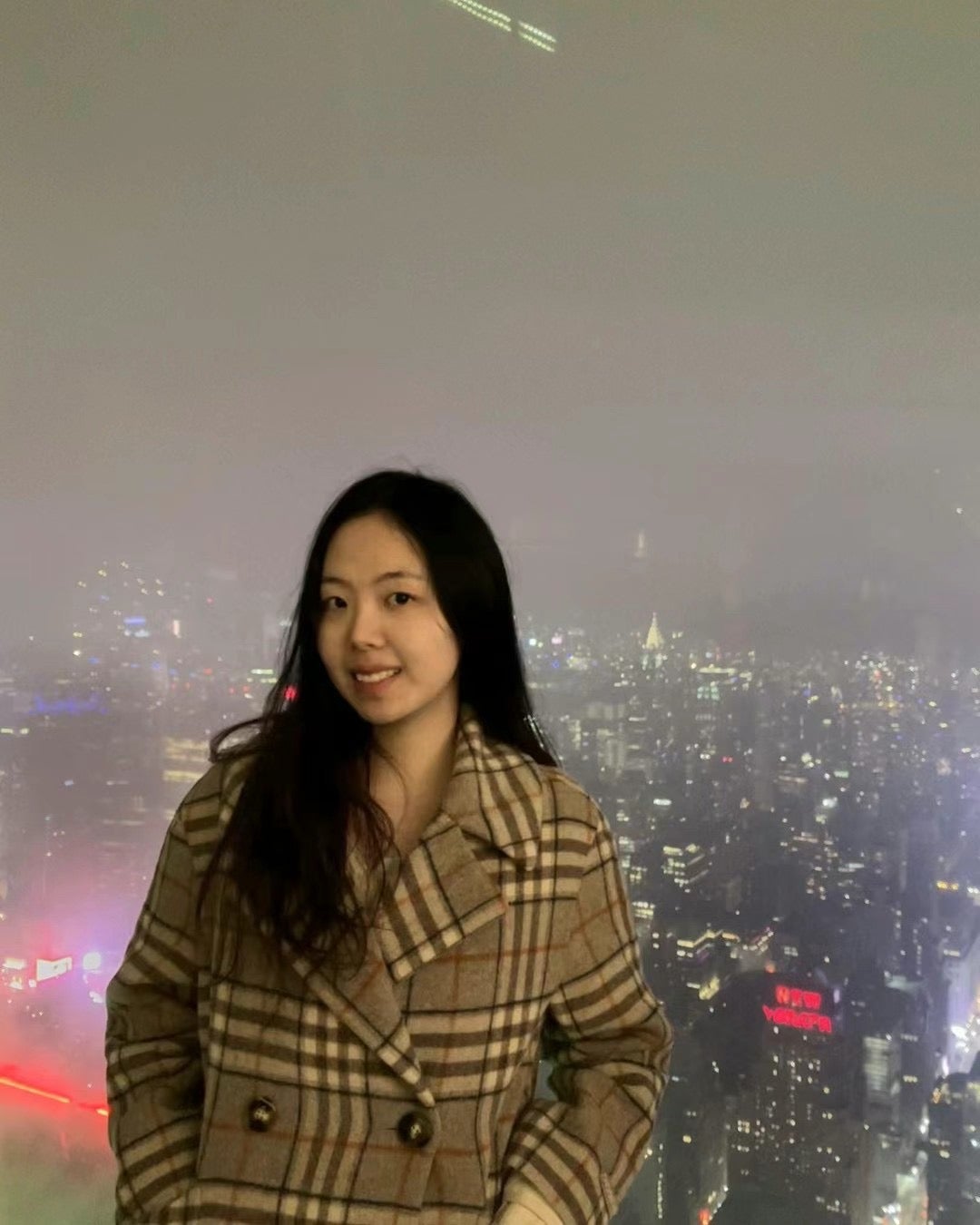
Although hailing from Central South University in China, Cara already had connections to the Cheriton School of Computer Science. For over a year, she collaborated remotely with Professor Jian Zhao on ClassComet. This LLM-driven platform automatically generates danmaku, which are real-time, on-screen comments for online educational videos. Notably, danmaku helps enrich video content, showing promising results in boosting learning outcomes and student engagement.
This international collaboration prompted Cara to continue her research at the Cheriton School of Computer Science. Her decision was also motivated by Waterloo’s abundant resources in both academia and industry. She hopes to leverage AI to enhance HCI, such to solve realistic interactive scenarios or create AI technology from a “human-centred perspective.”
“Many existing AI systems operate in isolation or offer limited user interaction. Interactive AI aims to bridge this gap by enabling more natural, responsive, and collaborative experiences where humans and AI can work together as partners.”
“I’m so honoured and grateful to be selected as a recipient of the 2025–26 Vector Scholarship in AI from the Vector Institute. I’m sincerely thankful to my supervisor, Jian Zhao, for his great support and for introducing me to this opportunity. Moreover, I'm excited to pursue further studies and research at the University of Waterloo.”
Lucas Kopp
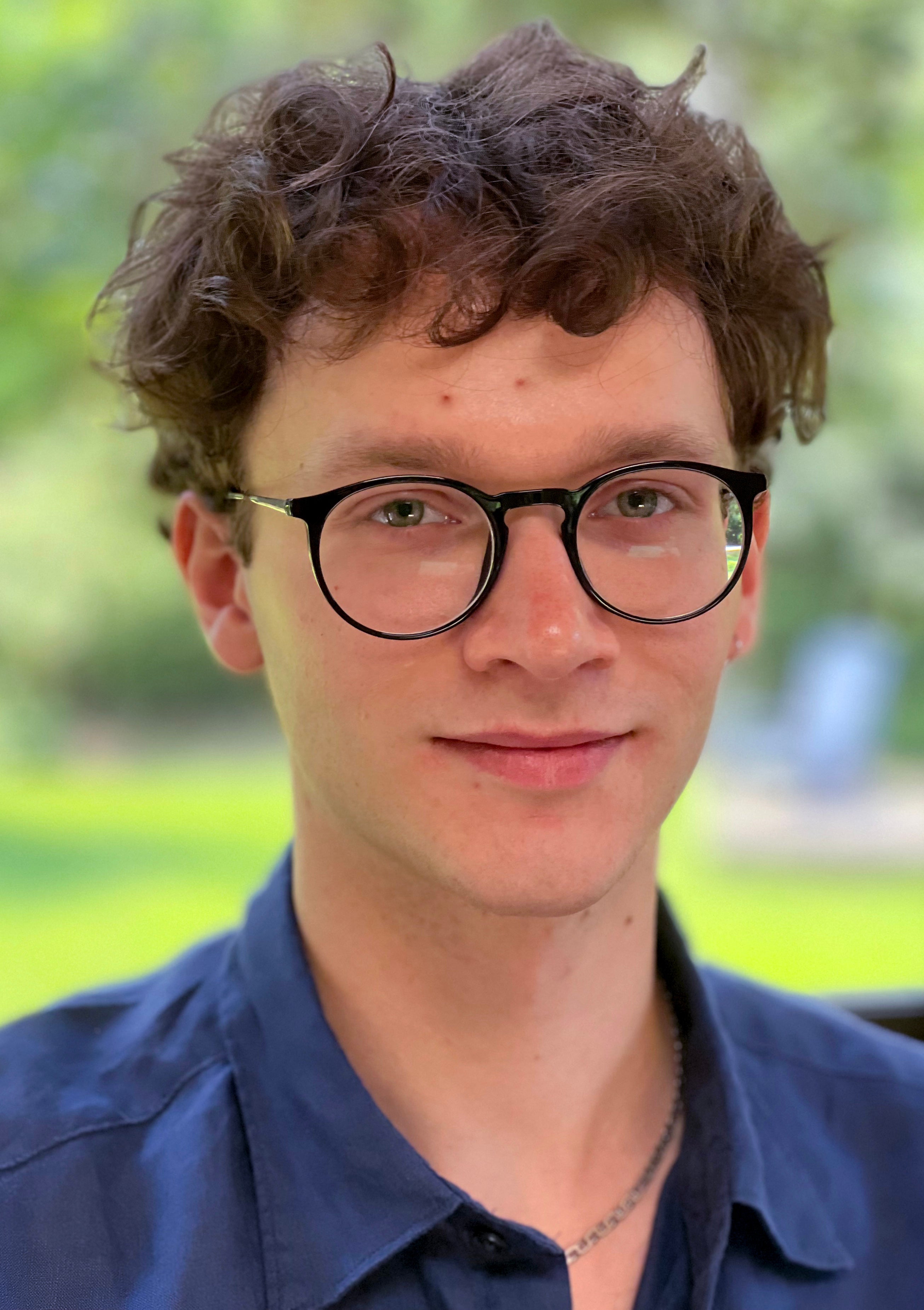
Lucas Kopp, a recent graduate of Western University, brings an interdisciplinary background to his AI research. He holds an honours BA in philosophy and an honours BS in computer science, a combination that informs his focus on AI safety and interpretability, particularly how to make AI-driven decisions understandable to end users.
“More and more AI systems are being used in increasingly high-stakes areas,” Lucas says. “It’s vital that people being impacted by these decisions are able to trust that the system is safe, responsible, and has their best interests in mind.”
In September, Lucas will begin graduate studies as a master’s student in the Cheriton School of Computer Science, co-supervised by Professor Robin Cohen and Professor Lukasz Golab, cross-appointed to the Cheriton School of Computer Science from the Department of Management Science and Engineering.
“My goal is to use my background in philosophy and computer science to develop a framework that guides developing AI systems that people feel comfortable relying on,” Lucas explains.
He’s especially interested in counterfactual explanations, a technique that shows how small changes to an input can lead to different AI outcomes. These insights not only help explain decisions, such as why a loan application was denied, but can also expose underlying biases or flaws in the system.
“This involves probing the system to change parameters to understand what would have to change the least for the decision to have been different,” Lucas explains. “Perhaps you needed a salary that’s $10,000 a year higher. Or maybe it reveals that the system isn’t safe because it says that the gender of the applicant needed to be different.”
Lucas was drawn to Waterloo because of its strong reputation in computer science and its collaborative research environment.
“Waterloo was very welcoming, which was not the case at every university I applied to,” he says. “It also has one of the best schools of computer science in Canada and the world. People are working on all aspects of computer science, so there are many people I can talk to if I have a problem outside my research area. And there’s also many people within my area that I can bounce ideas off of.”
Receiving a Vector Scholarship affirms his research direction.
“I’m flattered to have this opportunity, as it confirms I’m in the right space and that my interests are relevant and worth supporting. The funding also provides peace of mind so I can focus on my studies.”
Xiaoxi Luo
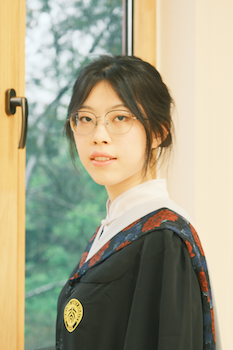
As a data science student at Peking University, Xiaoxi Luo complemented her technical training with extensive coursework in Chinese linguistics, especially Ancient Chinese. This academic foundation shaped her long-standing interest in the intersection of computation and language science.
“I will use computational and statistical models, including modern NLP systems, to formalize linguistic phenomena, automate linguistic analysis, and empirically test theoretical assumptions. On the other hand, I aim to bring linguistic insights into the study of large language models, particularly in areas like interpretability and evaluation.”
At the heart of Xiaoxi’s research is tackling the low-resource language problem: many languages do not have enough digital resources, such as dictionaries, speech data, and annotated text for effective NLP modelling. As a result, Xiaoxi hopes to expand LLMs’ capabilities by exposing them to historical and low-resource languages.
“In the real world, this could make LLMs more accessible to underrepresented communities and contribute to the preservation of linguistic and cultural diversity.”
Her research doesn’t just benefit society but also academia. “Cross-linguistic studies and diachronic analysis often require knowledge of multiple languages and years of training, which poses significant challenges for human researchers,” says Xiaoxi. However, her work can yield novel NLP systems, helping these researchers broaden their scope.
This fall, Xiaoxi will join Professor Freda Shi’s Computation, Language, Intelligence, and Grounding (CompLING) Laboratory. She was drawn to Waterloo’s world-renowned resources in math and computer science.
“I’m truly honoured and excited to receive the Vector Scholarship. This recognition not only supports my academic journey but also gives me the confidence to explore new ideas and tackle new academic challenges. I’m deeply grateful for the support and look forward to contributing meaningful work to the NLP community.”
Hosna Oyarhosseini
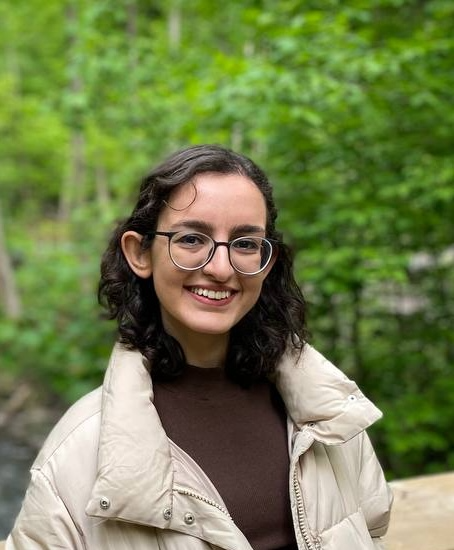
Hosna Oyarhosseini, a graduate of Iran’s Amirkabir University of Technology, chose the University of Waterloo for its outstanding faculty, excellent research facilities, strong academic network, and supportive environment. She will be co-supervised by Professors Jimmy Lin at the Cheriton School of Computer Science and Amirhossein Karimi at the Department of Electrical and Computer Engineering, who will guide her research that intersects explainability and information retrieval.
“As information retrieval models — and AI models in general — become more powerful and consequently more complex, there is a growing need to make them more transparent and explainable. I aim to make IR systems more transparent so users can understand why certain results appear. This helps build trust and makes the system’s outputs more usable, especially in high-stakes areas like legal, academic, or medical search. Better explanations also support responsible use and debugging of these systems.”
“I'm very grateful to receive this support. It motivates me to push further in my academic journey and gives me the opportunity to focus more deeply on impactful research.”
Michael Solodko

Software engineering alum Michael Solodko is tackling data lake environments. Unlike traditional databases, where every record fits neatly into predefined columns, a data lake stores everything in its original, raw, and unprocessed form— making data search and extraction difficult. Although this flexibility is powerful it can also turn simple questions (e.g. Has this patient even been prescribed amoxicillin?) into hours of manual digging. Industries that churn huge volumes of disjointed and unstructured data, such as healthcare and finance, feel this pain most acutely. Fortunately, Michael and his advisor, Professor Victor Zhong, are investigating how to effectively build a natural-language question answering system designed for these disjointed data lakes.
“It’s incredible to receive this scholarship,” says Michael, who first heard about the Vector Institute in high school. Inspired by Geoffrey Hinton’s work, Michael took his machine learning course on Coursera. Although the concepts were quite advanced for a high schooler, he knew then that he wanted to be involved in the AI landscape.
“Great ideas grow when you’re surrounded by people who share the same curiosity. Vector provides that with their space and community, and I’m extremely excited to see what happens in the next two years.”
“A big thank you to my supervisor, Professor Victor Zhong. None of this would have been possible without his support.”